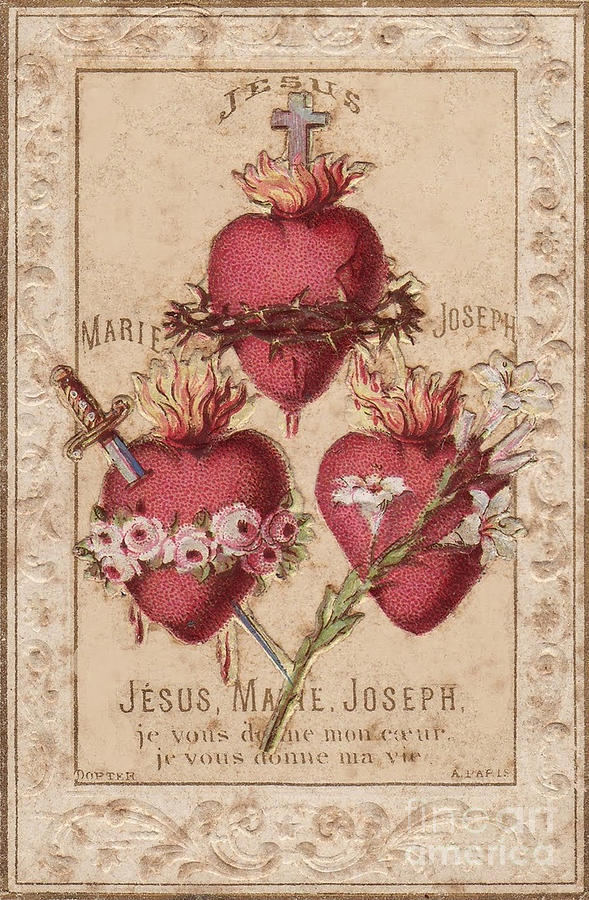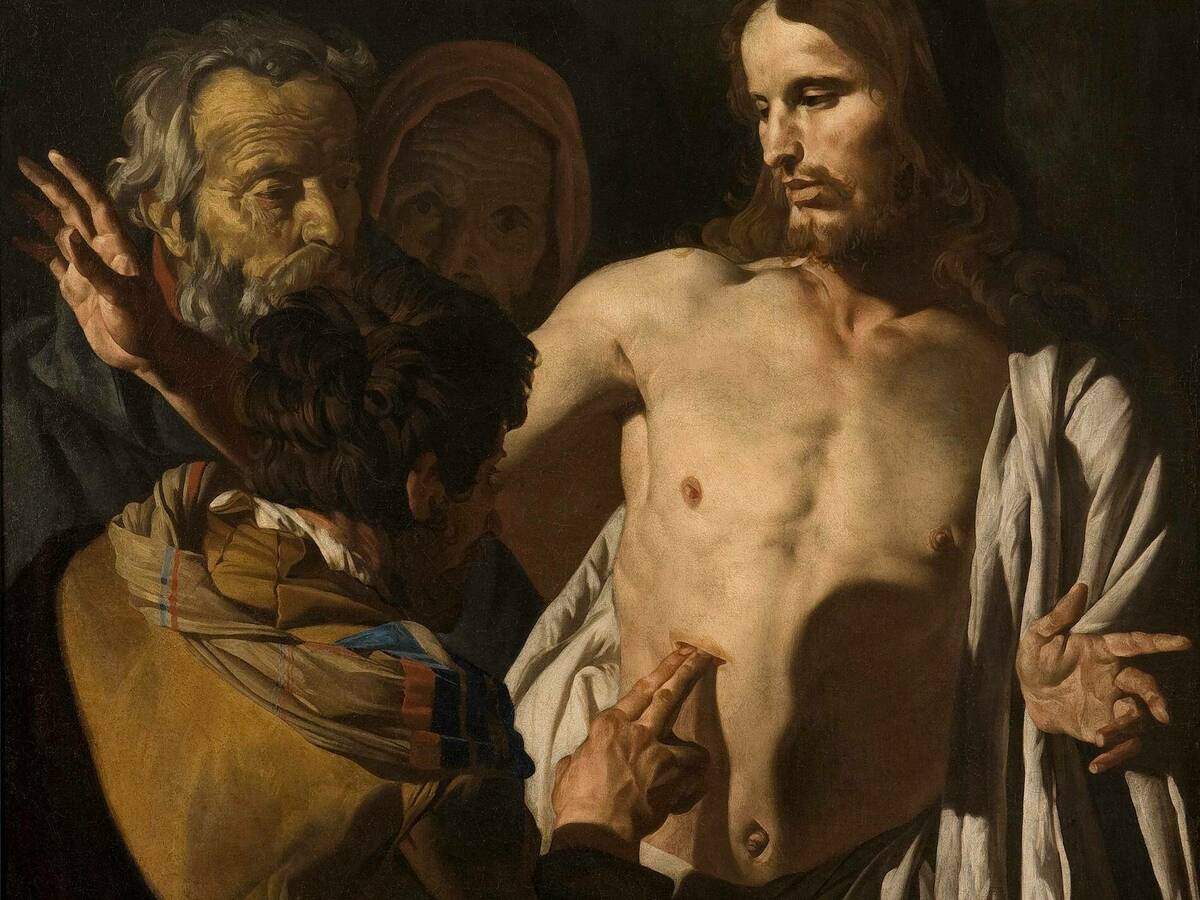Wednesday, June 28, 2023
Sacred Fire: Practicing Devotion to the Heart of Jesus
Sunday, June 18, 2023
The Heart of St. Joseph
St. Joseph is known as “the just man” and, as such, was a man of singular virtue. This strength of character, this reign of virtue, extended to all aspects of his life and his person—including his heart. His whole being was oriented to his God. His love was properly ordered, his affections purified. Unlike St. Joseph, we tend to struggle, and oftentimes fail, with matters of the heart. Our culture certainly does not hold the virtue of chastity in high esteem. Therefore, it can seem incredible to us that a man like Joseph was able to rise to the lofty challenge presented to him: to be the “chaste guardian of the Virgin” (and of all virgins) and the foster-father of the Son of God. Such a task requires both remarkable human virtue and unexcelled amounts of God’s grace. St. Joseph had both.
The tradition with regard to the age of St. Joseph varies (the Eastern Church holds that he was an old man, while the West concedes that he may have been much younger), but at the heart of the issue is the fact that it was Joseph’s virtue—not merely old age, lack or virility, or lethargic passions—that safeguarded the perpetual virginity of the Mother of God, and allowed him to guide and protect Mary and Jesus with such strength of pure love.
This should be a great consolation to us who still wander in this vale of tears, striving for holiness. St. Joseph was a great man with a “most chaste heart” but whose love was certainly not cold. For this reason, the Diocese of Charlotte’s logo for the Year of St. Joseph depicts his Most Chaste Heart inflamed with love and adorned with the white lily of purity. The heart of St. Joseph should give us great hope that purity of heart lies within our reach, thanks to the grace of God and the intercession of Joseph-most-chaste! (Read more.)
From St. Joseph: Our Patron:
I am convinced that by reflection upon the way that Mary’s spouse shared in the divine mystery, the Church – on the road towards the future with all of humanity – will be enabled to discover ever anew her own identity within this redemptive plan, which is founded on the mystery of the Incarnation. This is precisely the mystery in which Joseph of Nazareth ‘shared’ like no other human being except Mary, the Mother of the Incarnate Word. He shared in it with her; he was involved in the same salvific event; he was the guardian of the same love, through the power of which the Eternal Father ‘destined us to be His sons through Jesus Christ.’ (Eph. 1:5) ~St. John Paul II (Read more.)
Monday, June 12, 2023
Life: A Battlefield of Many Wounds
“Men and women are flesh and bone, hands and feet, the pierced side of Christ—his mystic body,” adds the author concealed by the pseudonym Moine de l’Eglise d’Orient. “In them we can achieve the reality of resurrection by our actions.” He challenges us to see Christ not only in the socially needy, the sick, the poor, and the abandoned, but above all in people who are remote from us and that we don’t like: “Christ is imprisoned once more in many of those men and women—in wicked and criminal people. Free him by recognizing him quietly and silently and you will invoke him in them.”
These are difficult, demanding words. Who can listen to them? And who has the courage to put them into practice, or at least try? We are accustomed from many sermons to being challenged to help people in social distress, and maybe we do so from time to time. There are not too many sermons about loving one’s enemies—and when there are, one often has the embarrassing feeling that neither the preacher nor his listeners take it too “literally,” or, more likely, they don’t take it seriously at all. That’s just something they say in church! We have already mentioned that the main difficulty with that saying of Jesus is that we take the concepts of love and hate to be simply emotions (and not attitudes and conscious decisions, the focus of our life). Naturally we are well aware that “there is no accounting” for emotions and that feelings of resentment persist in spite of our good intentions to fulfill Jesus’s outlandish command.
Here the pseudonymous author presents us with a new theological and spiritual stimulus to have the courage to accept those people whom we would normally not be inclined to—“the wicked and criminal.” He doesn’t tell us to love and accept their wickedness, or to ignore, downplay, or forgive their wicked deeds and characteristics. Nor does he urge us to have any emotional attachment toward them. He simply tells us that Christ is present in the humanity of everybody through the mystery of the Incarnation. He is “imprisoned” in the “wicked” because they have not allowed him his freedom, they have not allowed him to reign in their hearts and actions.
By realizing that they too “belong to Christ” (and hence to us too) we do not liberate those people from evil. So far we only liberate our relationship to them—by allowing Christ to enter our attitude to them as the faithful image of the Father, who “makes his sun rise on the evil and on the good, and sends rain on the righteous and on the unrighteous.” Just how much our attitude toward them and our way of thinking about them influences our behavior and actions, and how much our behavior can retroactively affect them, influence them and possibly change them, is another open chapter of this story.
Christ only ever comes as a challenge, a proposition, an invitation to follow him, an open possibility—as The God Who May Be. It is entirely foreign to him to pressure us to manipulate us or not respect our freedom. The God that Christ presents us with (through his words and his personality) addresses us and challenges us but never forces us to do anything. That is what our Christian witness should be like: we are here to broaden the horizon of “possible” (i.e., anticipated, usual, “logical,” “natural” behavior—the way things are done, the way of the world) to include what to people who do not know God and don’t take Christ seriously naturally seems impossible. This also—being here as an “alternative”—is part of our ministry of healing, liberation, and “driving out evil,” of which many have a somewhat romantic perception.
The “supernatural” in day-to-day “exorcism” (driving out evil) does not consist of what gripping films about exorcists luridly describe. It is something quite different: the breaking down of the boundaries of “the possible,” or what the world around us regards as “normal” and natural, by our “impossible” behavior. Yes, we are called on to perform miracles—if we understand miracles, not in a romantic or Enlightenment sense of “breaking natural laws,” but as what they really are: events that we have no right to expect in the given circumstances. (Read more.)






















